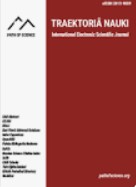The Limitations of Commercialized Security on National Security in Nairobi County, Kenya
The Limitations of Commercialized Security on National Security in Nairobi County, Kenya
Author(s): Gerald Peter Mutonyi, Merecia Ann Sirera, Wangari MwaiSubject(s): Security and defense, Criminology
Published by: Altezoro, s. r. o. & Dialog
Keywords: commercial security; commercial security services; manned guarding; alarms and electronics; CVIT; investigation; security; limitations; national security;
Summary/Abstract: The state has traditionally undertaken maintenance of security and good order for the citizens. But due to the deficiencies in governments, other actors have been looked upon to supplement the supply of security services. The commercial security industry, which has developed and grown expansively, is one. The sector provides policing services to their subscribed consumers. Despite the commercialised security industry growing in Nairobi, Kenya, few studies have assessed the limitations of commercialised security to impact national security on national security positively. The study took on a cross-sectional survey design. A multistage sampling technique was employed to obtain the respondents. Questionnaires, scheduled interviews and structured observation were used to collect data. These descriptive statistics were used to summarise variables into thematic areas and convey key variables' characteristics. The study identified six limitations: not being armed with firearms was the most mentioned, poor working conditions of guards was second mentioned, lack of courtesy by guards was the third most mentioned, lack of trust by the state security agencies was the fourth, and last was, lack of regulation and licensing. The study concluded that the limitations of commercialised security on national security bring the hurdles the industry faces to the fore. Consequently, the country should have favourable mechanisms to oversee the industry's continuous reevaluation. The suitable means can only be realised through the stakeholders' consultation: the commercial security industry, the citizens and the state. Thus, the study recommended that the Private Security Regulation Authority start implementing some of the requirements in the PSRA No. 13 of 2016. It meant to streamline the industry in terms of the training of the security guards, remunerations of the security guards, minimum requirements for recruitment and working environments.
Journal: Traektoriâ Nauki
- Issue Year: 8/2022
- Issue No: 01
- Page Range: 1009-1022
- Page Count: 14
- Language: English

